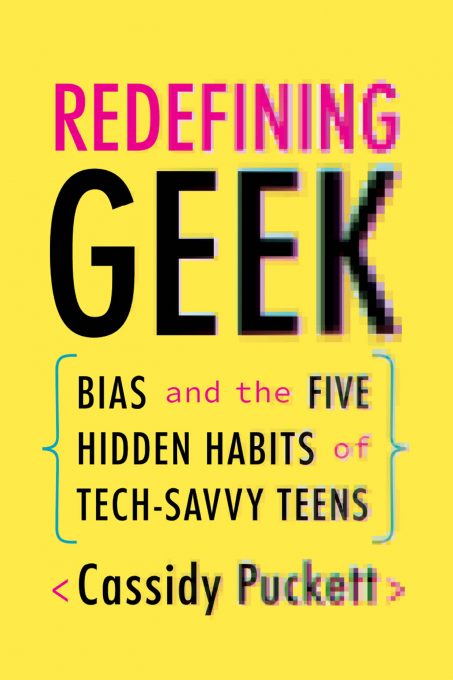
iStockPhoto.com // Prostock-Studio
The Problem with Social Problems
Social problems—issues that negatively affect social groups, like poverty and racial discrimination—drive sociological inquiry. Sociologists trade in stories of the downtrodden, inequities between rich and poor, and institutional failures. We classify groups beleaguered by these problems with labels like “the disadvantaged,” “the poor,” and “the at-risk.”
Yet, this primary focus on problems distorts and misrepresents the range of human experience. It portrays people experiencing poverty, for example, as continually deficient. Growing up in a low-income household, I was shocked the first time I heard a well-regarded inequality scholar say, “Poor people think X,” as if people experiencing poverty are of the same, less critical/developed mind. This view is materially reflected in our profession; first-gen/low-income professors receive lower compensation and visibility and experience higher levels of isolation than more affluent colleagues. Given the focus on social problems, it makes sense that a “culture of poverty” perspective lingers in academia and broader society.
Understanding social problems is important, to be sure. But equally critical is understanding the opposite, where historically marginalized groups instead set the standard—well beyond simplistic notions of “resilience.” For example, girls in lower-income school districts who outperform boys in mathematics. Or, Black families that weave stronger intergenerational family ties than white counterparts. Studying such cases can help reveal how inequity does—or does not—function, and it can correct the deficit-model assumption that groups facing historical obstacles could not possibly be the benchmark.My book, Redefining Geek: Bias and the Five Hidden Habits of Tech-Savvy Teens, takes this approach by examining what digital divide discourse might suggest is “surprising”—the tremendous technological capabilities of lower-income and minoritized youth. I follow a roadmap set forth by scholars like Na’ilah Suad Nasir, who called into question the accuracy of standardized tests in measuring the mathematical abilities of Black youth by documenting their statistical prowess.
In Redefining Geek, I question the portrayal of “disadvantaged” groups as technologically disconnected and low-skilled. I knew from first-hand experience teaching and observing in Oakland, Chicago, and elsewhere that the picture is more complex. In fact, some of the techiest people I’ve encountered are thriving in underfunded, small-but-mighty youth media organizations and classrooms—and, as I wrote in my book, we have much to learn from them.
Like Jasmine, a Black eighth grader on Chicago’s South Side. When presented with a novel tech activity, Jasmine learned to use a computer application called Scratch in under seven minutes—faster than any other teen I challenged to complete this task (and faster than my undergraduate students!). Using highly skilled teens like Jasmine as the benchmark, I took a close look at their skills and identified five key technology learning habits essential to being dexterous in the digital age: willingness to try and fail, managing frustration and boredom, using models, considering the logic of a technology’s design relative to one’s goals, and using “efficiencies,” or shortcuts.
 This approach of benchmarking marginalized groups matters in particular for the quantitative analysis of skill. Examining the talent of a diverse group of techy teens made it possible to develop a Digital Adaptability Scale (DAS) to measure their abilities without introducing bias. If I had created and validated the measure by studying “tech experts” in Silicon Valley rather than Jasmine and other savvy teens, I would have crafted a measure that amplified inequities. In fact, as computing historian Janet Abbate wrote in her book Recoding Gender, in the early days of computing, male-biased psychological tests helped attach “masculine” traits to tech skill and push women out of tech.
This approach of benchmarking marginalized groups matters in particular for the quantitative analysis of skill. Examining the talent of a diverse group of techy teens made it possible to develop a Digital Adaptability Scale (DAS) to measure their abilities without introducing bias. If I had created and validated the measure by studying “tech experts” in Silicon Valley rather than Jasmine and other savvy teens, I would have crafted a measure that amplified inequities. In fact, as computing historian Janet Abbate wrote in her book Recoding Gender, in the early days of computing, male-biased psychological tests helped attach “masculine” traits to tech skill and push women out of tech.
Instead, the DAS enables a better understanding of the complexities of the digital divide. Contrary to popular stereotypes, girls are no more fearful of failing with technology than boys. But, they have lower average scores on the two tech-specific habits that require more explicit explanation than the others: design logic and efficiencies. This suggests information is not shared equally across gender. There are also no racial, ethnic, or socioeconomic distinctions in the habits, which means so-called “disadvantaged” groups are skillful but go unrecognized for their tech talents.
I am far from the first to claim that a focus on social problems can help perpetuate them. Mary Pattillo (2021), for instance, advocates a “Black Advantage Vision” and argues that a focus on Black disadvantage “piles on to the unrelenting barrage of negative information about Black people that permeates U.S. and world culture, and further feeds white people’s need for the pathological Black Other.” Pattillo maintains that social science is “partially the reason for W.E.B. Du Bois’s most poignant question: ‘How does it feel to be a problem?’”
To correct the historical misrepresentation of Black life, Du Bois cataloged its variation. More contemporary work like The New Brownies’ Book celebrates Black excellence. But exactly how to study successes rather than failures receives less attention in academic training, publications, and conversations. We sociologists like our problems.
Still, sociologists should care about these missing pieces for empirical, theoretical, and practical reasons. In focusing primarily on social problems, our discipline is operating with missing data. We’re bypassing key leverage for theory development. And, as a matter of practicality, if social scientists hope to address inequality, it is difficult to do so without a future vision.As technology historian Kelcey Gibbons (2022) writes of Black computing professionals excluded from dominant historical accounts: “[I]f we focus on failure, we miss the power of… Hopeful Action and imaginations of alternative futures.” By focusing on social problems, we overlook gifts like Jasmine’s and close the door to their contributions.
If we want to understand and improve the social worlds we claim to represent, beyond social problems, we need to study talent and triumph—especially in the places sociological research might currently make it seem least likely to be found.
Cassidy Puckett is in the Department of Sociology at Emory University. She studies technological change and inequality in education, occupations, and healthcare.
